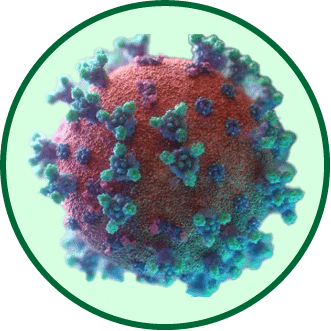Navigating Weight Fluctuations: Understanding Norms During and Post-Illness
Introduction:
Weight fluctuations are a common part of human biology, often influenced by factors like diet, exercise, stress, and sleep. However, experiencing an illness can lead to significant changes in body weight, leaving many to wonder what's considered normal. This authoritative guide delves into the causes of weight fluctuations during and after illness, offering insights into the body's natural responses and providing guidance on when medical advice might be necessary.
1. The Dynamics of Weight: Fundamentals of Body Fluctuations
- Defining Weight Fluctuations: An overview of how and why body weight can shift, from fluid retention to muscle mass changes.
- Baseline Weight Variations: Discussing the natural daily and weekly weight variations healthy individuals experience due to factors like hydration, food intake, and physical activity.
- Keywords: weight fluctuations, baseline weight, fluid retention.
2. Illness and Weight: The Body's Natural Response Mechanisms
- Metabolic Changes During Illness: How acute or chronic illness can lead to increased or decreased metabolic rate, influencing energy usage.
- Appetite Alterations: Exploring how illness can affect hormonal cues, often leading to reduced appetite or unusual cravings, and its impact on weight.
- Activity Levels: Understanding that reduced physical activity during illness due to fatigue or weakness can contribute to weight changes.
- Hydration Status: Discussing how illness can impact fluid balance through fever, sweating, or reduced fluid intake, leading to dehydration or fluid retention.
- Keywords: metabolic changes, appetite alterations, activity levels, hydration.
3. Weight Loss During Illness: When to Be Concerned
- Significant Weight Loss: Indicating what percentage of body weight loss should be concerning and over what period.
- Unintended Weight Loss: Distinguishing between weight loss due to deliberate diet changes and unexplained weight loss resulting from illness.
- Underlying Conditions: Discussing how certain illnesses, especially chronic conditions, can lead to substantial weight loss.
- Seeking Medical Guidance: Advising on when and why to consult a healthcare professional regarding weight loss during illness.
- Keywords: significant weight loss, unintended weight loss, underlying conditions, medical guidance.
4. Post-Illness Weight Gain: Recovery and Expectations
- Recovery Phase: Explaining how the body might compensate for weight lost during illness by increasing appetite or reducing energy expenditure once the acute phase of the illness is over.
- Impact of Medications: Discussing how certain pharmaceuticals, especially corticosteroids, can lead to rapid weight gain.
- Mental Health Considerations: Understanding the emotional and psychological impacts of illness and recovery that can affect eating patterns and activity levels.
- Healthy Weight Restoration: Providing guidelines for gaining weight back healthily post-illness, emphasizing balanced nutrition and gradual reintroduction of physical activity.
- Keywords: recovery phase, medications, mental health, healthy weight restoration.
5. Maintaining Balance: Strategies for Post-Illness Weight Management
- Nutritional Support: Emphasizing the importance of a balanced diet rich in essential nutrients to support recovery and weight stabilization.
- Gradual Physical Activity: Advising on the reintroduction of exercise, tailored to individual recovery rates and previous activity levels.
- Monitoring Weight Trends: Discussing the benefits of regular, but not obsessive, weight monitoring to keep track of progress and health.
- Professional Nutritional Counseling: Recognizing when to seek support from a dietitian or nutritionist for personalized advice.
- Keywords: nutritional support, physical activity, weight trends, professional counseling.
Conclusion:
Experiencing weight fluctuations during and after illness is a common aspect of the human body's response to fighting and recovering from disease. Understanding what constitutes normal variations and recognizing signs of potential complications can ensure individuals navigate these changes healthily and proactively. It's essential to approach weight management with patience, to listen to your body's cues, and to seek professional advice when uncertainties arise, ensuring a balanced path to recovery and long-term health.
(Note: This article is intended for informational purposes only and does not constitute medical advice. Always seek the advice of a qualified health provider with any questions you may have regarding a medical condition or changes in weight.)
Keywords: weight fluctuations, illness, recovery, appetite alterations, hydration, significant weight loss, medications, nutritional support, professional counseling.
